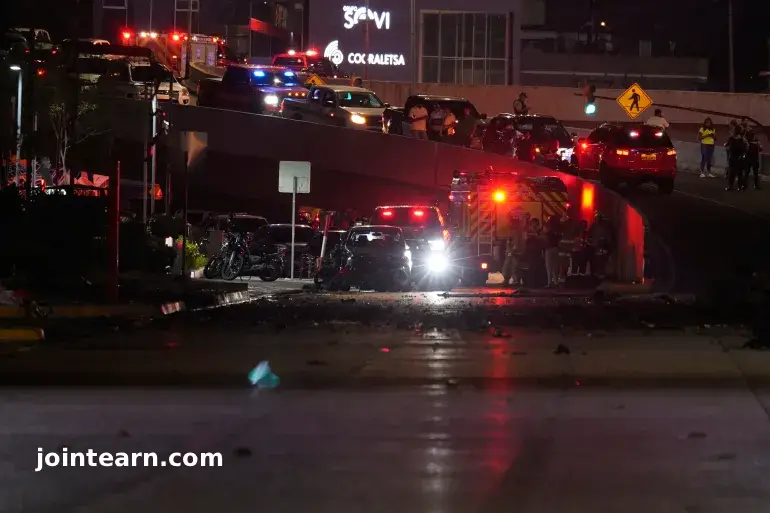
Multiple Explosions Shake Ecuador Amid Rising Criminal Violence
Ecuador is facing a new wave of violence after a series of explosions struck key infrastructure across the country. Officials have blamed a local criminal gang and Colombian ex-FARC dissidents for targeting two bridges in what is being described as retaliation for a major military crackdown on illegal mining operations.
The attacks mark the latest escalation in Ecuador’s ongoing struggle with organized crime. Under President Daniel Noboa, the government has been attempting to curb the influence of criminal groups that have increasingly shifted their operations from more militarized nations like Colombia into historically peaceful Ecuador.
Explosions on Bridges Cause Disruptions
According to Transport Minister Roberto Luque, explosives were planted on bridges “to block traffic” and described the attacks as acts of “terrorism.” Fortunately, no casualties were reported, but roads in the affected areas remain closed as authorities assess the structural damage.
Interior Minister John Reimberg specifically accused Ecuadorian gang Los Lobos—classified by the United States as a “foreign terrorist organization”—and former members of the now-defunct Revolutionary Armed Forces of Colombia (FARC) of orchestrating the blasts. These attacks followed a series of security operations that dismantled illegal mining operations in northern Ecuador and detained several ex-FARC members.
Bridge Damage Confirmed
The city of Naranjal, located roughly 290 kilometers southwest of Ecuador’s capital Quito, sustained damage to a bridge following one of the explosions. Local media reported twisted metal, rubble, and damaged vehicles at the site, confirming the severity of the attack.
The second explosion targeted a bridge connecting the southern provinces of Azuay and El Oro. Emergency services warned that the structure could potentially collapse, prompting closures and detours for commuters and transport vehicles.
Car Bomb in Guayaquil Heightens Concerns
The bridge explosions occurred only hours after a car bomb detonated outside a shopping mall in Guayaquil, Ecuador’s largest city. The attack claimed one life and injured several others. Authorities successfully deactivated a second vehicle containing explosives found nearby.
In response, Ecuador’s Attorney General’s Office launched a formal investigation, and the government offered a reward for information leading to the identification and capture of those responsible.
President Noboa condemned the attacks at a public event, emphasizing that criminal organizations are attempting to destabilize the government. He stressed that Ecuador “cannot back down before people who want to terrorize Ecuadorian families.”
International Response
The U.S. State Department condemned the attacks as “brazen terrorist acts against the Ecuadorian people,” reaffirming its commitment to support Ecuador in combating organized crime.
Historical Context of Criminal Violence in Ecuador
Ecuador has seen a surge in violent incidents over the past several years, often involving car bombs, prison riots, and clashes with armed gangs. In March, a vehicle exploded outside Ecuador’s largest prison near Guayaquil, killing a prison guard. Multiple attacks in 2023 also highlighted the growing influence of transnational criminal networks and ex-FARC dissidents in Ecuador.
Experts warn that Ecuador’s strategic location has made it a target for smuggling and drug trafficking operations previously concentrated in Colombia, contributing to the ongoing instability.
Government Measures and Public Safety
Authorities continue to investigate the recent explosions while increasing security measures across major cities and transport infrastructure. Public officials are calling for vigilance and cooperation from citizens to help identify criminal networks involved in these attacks.


Leave a Reply